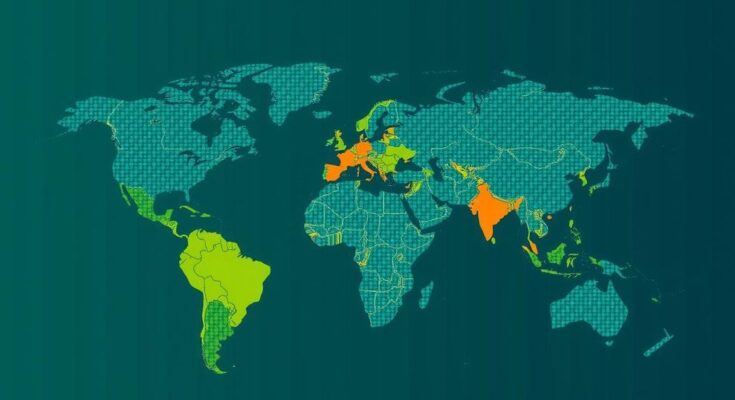During an ICJ hearing on December 5, India underscored the inadequacy of climate finance provided by developed countries, arguing for a minimum of $1 trillion annually to support developing nations and small island states. Despite advances in funding commitments, countries like India and those in the Caribbean expressed disappointment over insufficient financial support relative to their needs and ongoing climate challenges. The hearing, part of a larger series involving multiple states, seeks to clarify legal obligations surrounding climate change aid.
On December 5, during a session at the International Court of Justice (ICJ), India argued emphatically for a fairer global response to climate change, emphasizing the inadequacy of the climate finance mechanisms provided by developed nations. India voiced strong support for developing countries, particularly small island states, which are advocating for a minimum of $1 trillion annually from wealthier nations to bolster conservation efforts. The recent COP29 negotiations in Baku, Azerbaijan, concluded with a commitment of $300 billion, which, while an increase from the previous $100 billion agreed at COP15 in Copenhagen, still fell short of developing countries’ expectations.
India has consistently called for at least $1 trillion in annual climate funding since the 2015 Paris Agreement, advocating primarily for grants and concessional financing. Luther Rangreji, Joint Secretary and Legal Adviser at the Ministry of External Affairs, expressed concern that the agreed funding levels are “too little, too distant” and not consistent with the objectives outlined in Article 9 of the Paris Agreement. He stressed that the burden of combating climate change should not solely rest with developing nations.
Highlighting the unmet commitments made at the Copenhagen conference, Rangreji noted that developed countries had previously pledged $100 billion but have failed to translate that promise into concrete action. He emphasized the historical responsibility of developed nations as the primary contributors to greenhouse gas emissions, arguing that they should provide adequate support without expecting equal contributions from those nations that have contributed the least to the problem.
In these proceedings, the Prime Minister of Antigua and Barbuda, Gaston Browne, articulated the devastating impact of severe weather events on the livelihoods of vulnerable populations, claiming that the consequences of climate change exceed any financial remedies. Likewise, representatives from the Bahamas addressed the issue of coral bleaching and the challenges faced by fisheries due to climate change. Leo Ryan Pinder, Minister for Legal Affairs, pointed out that existing climate treaties obligate developed states to provide financial and technical assistance to vulnerable nations.
The ICJ hearing, which began on December 2 and is set to continue until December 13 in The Hague, represents a significant event in international climate discourse, encompassing the views of 97 states and 11 organizations. While the court’s advisory opinions lack binding power, they carry authoritative weight and could potentially steer future international law concerning state responsibilities and climate action.
The issue of climate finance remains a critical topic in global climate negotiations, especially as developing countries and small island developing states (SIDS) seek increased financial resources to combat the adverse effects of climate change. Since the adoption of the Paris Agreement in 2015, numerous discussions have centered around the commitment of developed nations to facilitate funding that meets the actual needs of those severely affected by climate-related issues. The recent COP29 negotiations have highlighted the persistent disparity between pledged funds and the actual amounts disbursed, sparking frustration among nations most vulnerable to climate change.
In conclusion, India, representing the broader concerns of developing countries, has articulated the pressing need for enhanced climate finance from developed nations, aiming for at least $1 trillion annually to effectively address climate change. The ongoing ICJ hearing serves as a pivotal platform to address these disparities and press for accountability from developed nations regarding their climate obligations, potentially reshaping international expectations on climate financing and responsibilities.
Original Source: www.outlookbusiness.com




